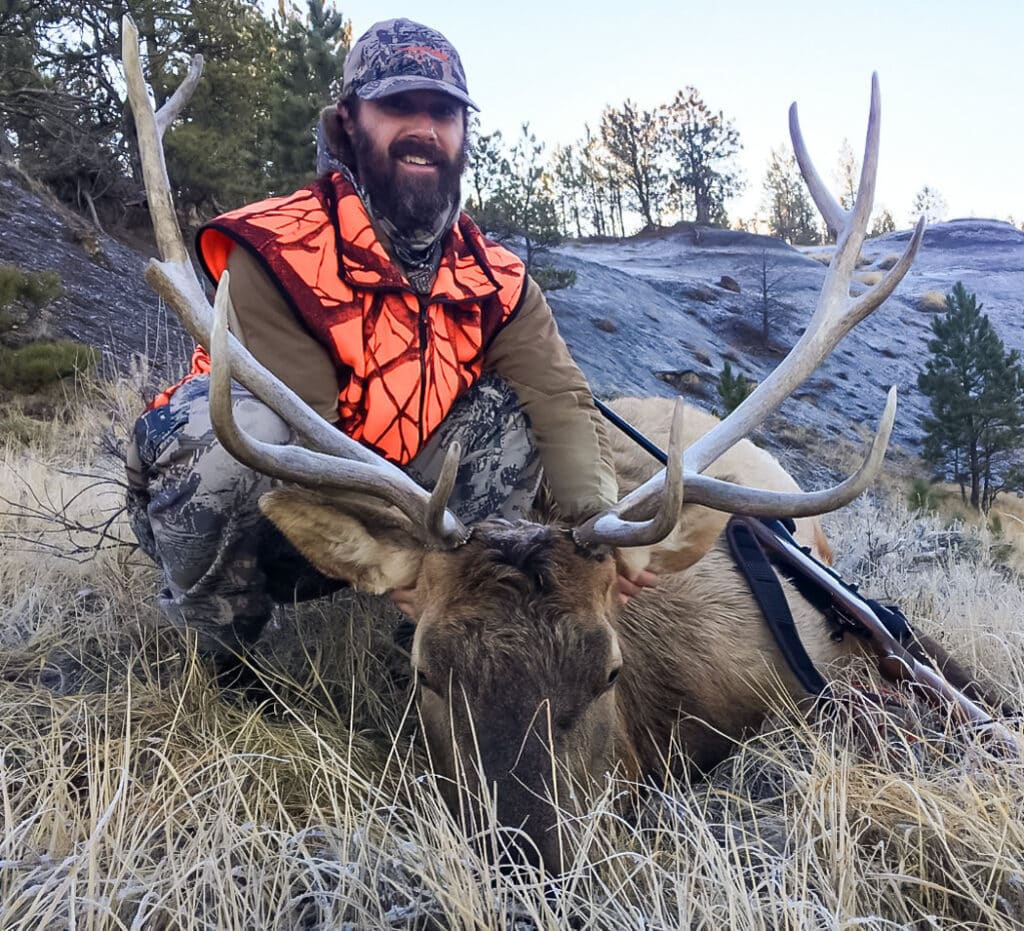
Here we go again: the 2017 Montana Legislature will convene next month, and the Montana Wildlife Federation’s (MWF) members, volunteers, and staff will be taking a leadership role on issues that affect wildlife, habitat and public access.
MWF and our conservation partners had numerous successes in the last Legislative session two years ago. We helped pass a major overhaul of Montana’s hunting and fishing license structure and fees. That vital bill helped shore up the finances for the Montana Department of Fish, Wildlife and Parks for years to come, while also simplifying the complex system of hunting and fishing licenses.
MWF also addressed several key conservation issues, including getting ahead of feral swine before they reach Montana; cracking down on intentional abuse of replacement hunting licenses; and overhauling how hunters tag game animals in the field to make it easier for hunters.
2015 was, overall, a good session for wildlife, habitat and hunters. But there’s work to do next year. In 2017, we have a strong agenda to build on our conservation successes from two years ago.
The 2017 Legislature: An Overview
Republicans maintain their solid majority in the Montana House of Representatives, with a 59-41 seat advantage over the Democrats. In the Senate, Republicans expanded their majority to 32-18.
Governor Steve Bullock won re-election and will be working on some similar issues as last session, including infrastructure spending and early childhood education. He will also be advancing some proposals to protect and expand Montana’s public lands and public access, which will be of great value to Montana hunters, anglers, and other recreationists.
Budget issues will be front and center this session, with revenue projections down sharply and expected tough decisions on spending. Bullock has called in his proposed Fiscal Year 2018-2019 budget for some targeted tax increases on high income earners, as well as some special taxes on cigarettes and medical marijuana. He is also pushing for bonding roughly half of the proposed $292 million in infrastructure spending. In addition, what to do about the looming closure of two units at the Colstrip power plants will be a big theme this session.
So where does that leave wildlife, habitat, access and hunters and anglers? It is likely that our issues will not be at the forefront, although as always there will be bills that need scrutiny and debate. Montana FWP has a few bills it is proposing, mostly clean up measures.
The Senate Fish and Game Committee will have new leadership this session. Sen. Jennifer Fielder, R-Thompson Falls, has served on the committee for the past two sessions and will take over as chair.
In the House, Rep. Kelly Flynn, R-Townsend, will return to chair the committee. Flynn is a rancher and outfitter who chaired the committee last session. He brought a bill to increase funding for the popular Block Management program last session, and has worked on an effort outside of the Legislature to improve landowner-hunter relations.
MWF’s Agenda
MWF will be bringing a bill to improve public access to public land. It is based on a bill we brought last time that would increase the fine for gating a public road that leads to public land. Currently the fine is $10 per day, far too low to serve as a deterrent for illegally blocking public roads. Our bill would raise the fine to a minimum of $100 per day.
We will also be working, as always, to maintain a strong defense against any bills that would interfere with scientific wildlife management. Already there are several bills in the hopper that look troublesome, including one that would require payments of hunter dollars to landowners for crop damage. These programs in other states have led to disastrous consequences, costing state wildlife agencies millions and leading to landowner tag programs that impede management and reduce public hunting opportunity.
MWF will also be working to gain some additional funding for livestock loss prevention work to keep grizzly bears out of trouble, as well as wolves. And we will be pursuing a bill to increase the payment to landowners in the popular Block Management hunter access program to create more of an incentive to join the program.
Finally, we will be working to ensure that full funding is restored to Habitat Montana, which is Montana’s most successful habitat protection program. The program uses hunter license dollars to pay landowners for conservation easements on private land, as well as to purchase key habitat for wildlife from willing sellers. Habitat Montana has increased available winter range for wildlife, helped keep working farms and ranches in business and helped reduce conflicts with wildlife. It has also increased public hunter access and opportunity.
Last session the Legislature put a budget rider on Habitat Montana that barred any land purchases that weren’t already in negotiation. That has caused some lost opportunities for FWP from willing landowners, and hurt hunters from Montana and around the country. It’s crucial that we get the program renewed and continue to protect key habitat in Montana.
Nick Gevock is MWF’s Conservation Director. Contact him at ngevock@mtwf.org.

